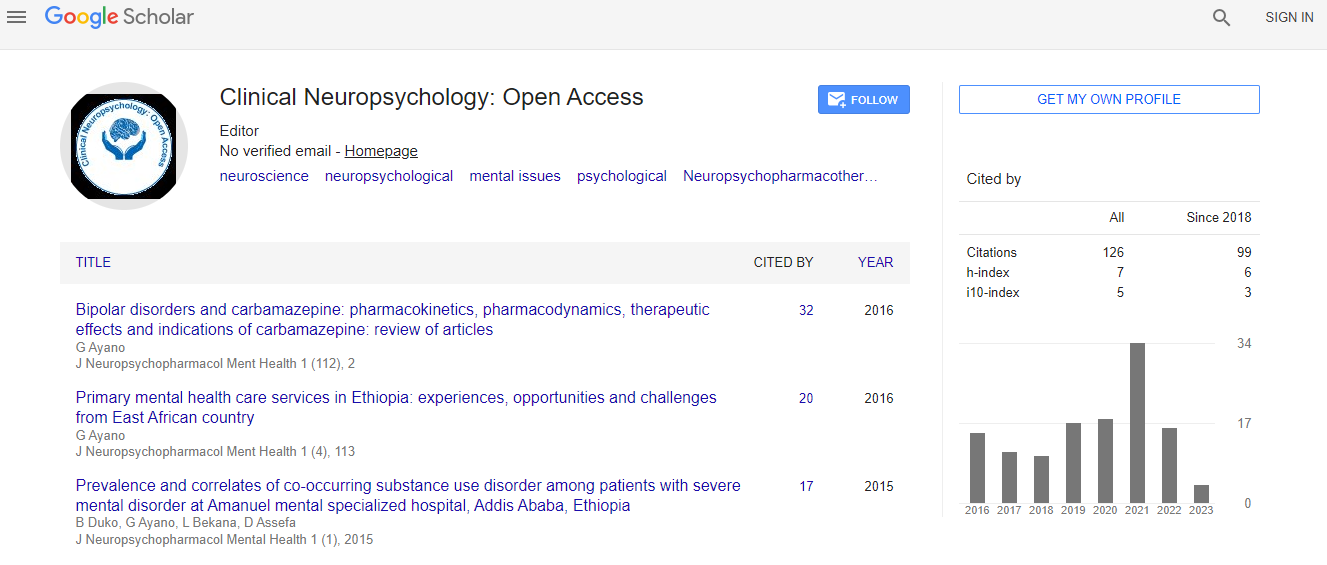Our Group organises 3000+ Global Conferenceseries Events every year across USA, Europe & Asia with support from 1000 more scientific Societies and Publishes 700+ Open Access Journals which contains over 50000 eminent personalities, reputed scientists as editorial board members.
Open Access Journals gaining more Readers and Citations
700 Journals and 15,000,000 Readers Each Journal is getting 25,000+ Readers
Google Scholar citation report
Citations : 141
Clinical Neuropsychology: Open Access received 141 citations as per Google Scholar report
Indexed In
- Google Scholar
- RefSeek
- Hamdard University
- EBSCO A-Z
- OCLC- WorldCat
Useful Links
Recommended Journals
Related Subjects
Share This Page
Dementia is a disease of the ependymal layer: Novel theory from looking at cognitive impairment in multiple sclerosis
8th Global Experts Meeting on Advances in Neurology and Neuropsychiatry
Philip Anthony McMillan
Hull and East Yorkshire Hospitals NHS Trust, UK
Keynote: ClinNeuropsychol
Abstract
The intricacies of dementia are explored in relation to varied studies on brain atrophy in multiple sclerosis and used to delineate the primary pathology of the latter. The theory examines the high frequency of cognitive impairment in multiple sclerosis and its early manifestation during the disease. The fact that there is associated brain atrophy cannot be explained by the degree of damage to neurons. Carlos in 2015 noted a 5 to 10 times greater rate of atrophy in multiple sclerosis. The cognitive changes with multiple sclerosis are then correlated embryologically to the subependymal zone explaining the pathology of brain atrophy and why we have not made more progress through research. Our understanding of the blood CSF barrier and the brain CSF interaction is poorly understood and probably holds the key to the symptoms of dementia. This interaction between the CSF and brain interstitial space is coordinated by the ependymal and subependymal zone of the brain. This is a novel concept will aim to explain the links of all forms of dementia, as well as directing fertile areas for research.Biography
Philip Anthony McMillan is a Consultant in the NHS with over 23 years of medical expertise. His primary focus has been around geriatrics and neurological rehabilitation and has developed unique perspectives on the capacity of the brain to recover from injuries and disease. Through international collaboration he has proposed a nutritional protocol for dementia reversal and has recently had a breakthrough theory on the pathology of dementia. His current aim is to lead the field of dementia to a new direction of research and treatment of this devastating disease.
E-mail: philip.mcmillan@nhs.net

 Spanish
Spanish  Chinese
Chinese  Russian
Russian  German
German  French
French  Japanese
Japanese  Portuguese
Portuguese  Hindi
Hindi 